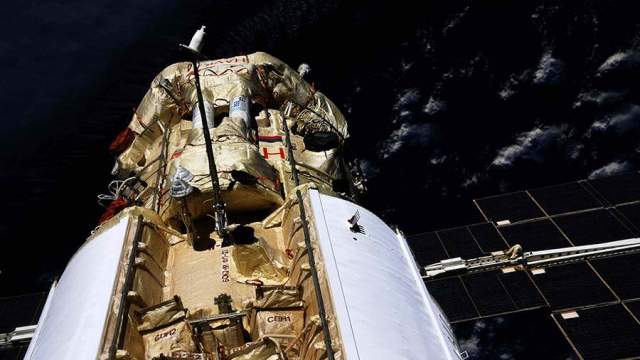The Commission of the Rocket and Space Corporation Energia has completed an investigation into the causes of failures that occurred during the flight of the Nauka module to the International Space Station (ISS). This was announced on Monday, August 30, by the general designer of RSC Energia, the flight director of the Russian segment of the ISS, cosmonaut, twice Hero of the Soviet Union Vladimir Solovyov.
"The commission of the Rocket and Space Corporation Energia has completed its investigation, the materials have been transferred to the Roscosmos commission. After the completion of the work of this commission, certain information may be made public, " he said in an interview with RIA Novosti.
Solovyov also said that the spontaneous activation of the engines of the Nauka module and the resulting rotation of the station did not become critical for the systems of the American segment.
"An hour after the incident, I spoke with my colleague Joel Montalbano — the head of the ISS program at NASA, whom I have known since 1993. I asked him about solar panels. He reassured me that the impact was two times less than the limit. He and his flight control team believe that nothing terrible has happened. Well, it turned out, so what? " - said the general designer.
According to him, NASA had no claims against the Russian side.
The Nauka module docked to the ISS on July 29. Russian cosmonaut Oleg Novitsky on board the ISS informed the specialists of the Moscow Mission Control Center (MCC)about the unplanned engines of the module. Soon the astronauts managed to turn them off.
To eliminate the loss of orientation of the ISS, it was necessary to turn on the engines of the Zvezda module and the Progress MS-17 cargo ship docked to the Poisk module.
The head of NASA, Bill Nelson, on August 3, during a conference dedicated to the operation of the ISS, said that the addition of the Russian module "Science" to the station will contribute to the development of cooperation between the Russian Federation and the United States. According to him, "Science" and the European robot manipulator will help to make even more discoveries, valuable both for life on Earth, and for moving into space and to Mars.

